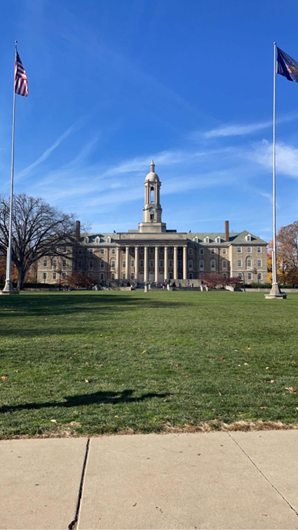It’s Time to Talk About Time
By: Edgar A. Pena-Acosta
A sunrise at Pennridge High School
Tired of switching your alarm clock every 8 months? Well, we have great news for you! On Tuesday, March 15, 2022, the U.S Senate passed legislation making daylight savings time permanent starting in November of 2023. Daylight savings has been a part of the United States since 1966, the reason it was put in place by the government was to conserve energy due to an oil embargo in 1973. Daylight savings time begins at 2:00 a.m. on the second Sunday of March and ends at 2:00 a.m. on the first Sunday of November. Ever since then it has been a tradition to step your clock back and forth these days. Sayings like spring ahead and fall backward were created to remember when to change your clocks.
So why has the government suddenly decided to change this 56-year-old national tradition? According to Senator Marco Rubio, keeping daylight savings year-round “gives children an additional hour of sunlight after school which will allow for safer trips home, more time spent outdoors and other health benefits.” The members of Congress have been interested in the potential benefits and costs of daylight savings, and according to Representative Frank Pallone, a study suggested 71 percent of Americans are in favor of ending the time change each year.
What does this all mean for the rest of America? Keeping daylight savings both has its benefits and downfalls. For starters, changing from standard time to daylight savings time disrupts people’s sleep schedule. This can be linked to cardiac problems and other health risks according to two experts who testified against daylight savings. Lawmakers want to keep daylight savings time because it saves energy. The sun will be setting an hour later lowering the need for electricity in household lighting saving the United States an extra hour of no lights in houses. Experts have also said that keeping daylight savings saves lives and prevents traffic injuries. More people will be traveling to school and work during the daytime reducing the risk of car crashes in the early morning and afternoon. People in the Retail Industry have argued to keep things how they are claiming that removing standard time will hurt the economy and affect jobs.
How will this affect people in our district? Connor Smith, a freshman at Pennridge High School was asked which time change he preferred, spring forward or fall backward “I prefer spring forward because the days are longer.” Because Connor Smith is a freshman he’ll experience going through high school without the time change. But when asked if this time change will affect him he answered, “It wouldn’t really affect me I think.” He won’t know until the change happens but hopefully, the removal of the time change will no longer affect his sleep. We also interviewed Bob Pilszka, a United States citizen who takes the train to work every day and gets home around 5:00 p.m. He believes that it’s a good idea to get rid of standard time completely “I don’t like it being dark early, it makes for long weeks”. The country now awaits for the bill to be voted on by the House of Representatives and passed by the President.
Edgar Alejandro Pena-Acosta, Grade 12. Interests/hobbies include working, going out with friends, playing video games, and hiking. Edgar plans to attend...
Dean Wilson, senior, class of 2022. Dean is involved in both band and choir ensembles including; marching band, jazz band, musical theater, concert choir,...










